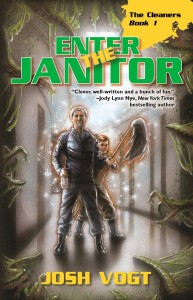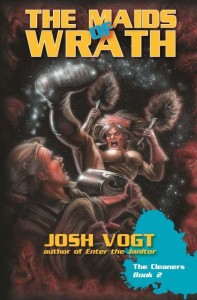“Come in, — come in! and know me better, man!” -Charles Dickens, A Christmas Carol
We’d love for you, our wonderful readers, to get to know us better. That’s why, each month, Kristin Luna will interview a member of The Fictorians. We’ll learn more about each member, such as their writing processes, their work, where they live, and what they prefer to drink on a cold winter’s day. We hope you enjoy this monthly installment of Meet the Fictorians.
Meet the Fictorians:
Gregory D. Little

Kristin Luna (KL): Hi Greg! How are you doing today, and what are you drinking?
Greg Little (GL): Hi Kristin! I’m doing well, though I’m a bit stressed in the way I always get with a looming deadline. At this precise moment I’m drinking an iced, black tea (a mix of iced tea blend and blackberry sage). Unsweet iced tea is my go-to drink, because I like a drink to taste like something and I can drink as much unsweet tea as I want, guilt-free. I also enjoy flavored fizzy water, wine, craft beer and a mixture of my own design I call Cokenade, which is Coke Zero and limeade. Wow. I just realized that I am SUPER pretentious with my beverage choices. Um, next question!
KL: No, not at all! That Cokenade sounds like it should have its own SyFy Channel movie, for real.
So another pressing question: dogs or cats? I have to know.
GL: We have a nine-year-old yellow Lab named Riley (I’ve actually done a Fictorians post about him because he likes to carry his poop bag for us on walks). Both my wife and I are allergic to cats, so that was never really an option, but Riley makes that doubly so. As a puppy he was genuinely curious about cats and wanted to play with them. Two face-clawings later, he shifted to more of a “cat genocide” stance. He’s never actually caught one, thankfully (cats seem to realize he means business and generally retreat), but he would love to. I try not to let this prejudice me toward cats, but there are only so many times you can have your arm nearly pulled out of your socket on a walk before you start to dread the sight of them.
KL: Nothing like a good cat-clawing to the face to learn a lesson. That’s how my cat keeps me in line, anyway.
Where did you go to school and what did you study?
GL: I graduated from Virginia Tech (Go Hokies!) with a bachelors in Aerospace Engineering. If you’ve read my author bio, I call myself a rocket scientist. That’s because when you tell people you are an aerospace engineer, you get one of two reactions: an impressed look or a look that mingles pity and horror. For whatever reason, changing that to “rocket scientist” gets you the impressed reaction a lot more often, so that’s what I go with.
KL: Wow, that’s awesome! So how does your education figure into your writing?
GL: Since science is all about how the physical world works, I like to understand that for the stories I write. For fantasy, I want some sort of logical underpinnings to my magic systems and worldbuilding. That doesn’t mean that every magic system has to have a clearly explained, Brandon Sanderson-esque set of rules, only that I as the author like to have an idea how it works even if I don’t make that clear to the reader. When I tackle science fiction, I feel an obligation to get the science right as much as possible. I try to make any deviations from science deliberate choices to suit the story rather than accidents.
KL: You have one book out right now called Unwilling Souls. What’s it about and what was your inspiration for writing it?
GL: A few years back I wrote a story, “Godbane,” set in a world where the gods were imprisoned inside the hollowed out center of the planet, and a group of blacksmiths had to keep them that way using tools forged of a special metal and empowered by the souls of the dead. The story was about teenage, star-crossed lovers on opposite sides of a social chasm left over after the war that imprisoned the gods.
After finishing the story, I thought it would be interesting if those characters had a daughter together, and then a falling out, after which each became powerful leaders and bitter enemies across that same social divide that had doomed their relationship. Unwilling Souls is the story of their daughter, Selestia (Ses for short). Abandoned by her mother, now a business magnate, and her father, now a terrorist, Ses is training as an apprentice smith at the prison where the gods are kept as the story begins, . An attack on the prison occurs on her sixteenth birthday, an apparent attempt to free the gods. As Ses’s father is the prime suspect, she’s forced to go on the run when the authorities lump her into their suspect list.
This interview is perfectly timed, too. Starting tomorrow, April 1st, it will be featured in a Kobo Next for Less promotional deal, where readers can pick up a Kobo e-copy for 50% off it’s normal price. That deal will last until the 15th of April
KL: Great story! Do you have any other books coming out that we can look forward to?
GL: I do! Unwilling Souls is the first of its series, and the sequel, Ungrateful God, should be out sometime this summer. In fact, the deadline I mentioned before is to deliver the manuscript to my editor, Fictorian Emeritus Joshua Essoe. Work on the cover is nearing completion as well, so things are on track! While Unwilling Souls is a chase story, Ungrateful God is more of a mystery with an explosive final third. I’m quite pleased with how it’s turning out.
KL: As Frank and Evan have mentioned in their interviews, writing a series isn’t easy. Do you have any advice you can share that you discovered while writing a series?
GL: Lots! One in particular applies if you write like I do. I’m mostly a discovery writer. While I have end goals and major waypoints in mind when I set out to write a story, a lot of the stuff between those points is discovered as I go. Sometimes the points themselves shift as things change! If you write in a similar fashion, the fear of hemming yourself in later in a series can be very stressful. While you should definitely plan out enough to avoid major disasters of a painted-into-a-corner variety, don’t sweat the small stuff too much. Little roadblocks of that sort will force you to get creative, resulting in better ideas than the lazy ones that are usually the first to occur to you.
KL: Let’s get more general: when it comes to writing advice, what’s the best you’ve heard?
GL: People will tell you that you have to write every day, or x many words or pages per day, or that you should write in the morning vs. the evening vs. the dead of night. When you get right down to it, most people are advising you to write in exactly the way that works best for them. But people are different. Write in the way that works for you. If writing every day causes you to burn out after a few months, then don’t write every day. If writing once a week causes you to get distracted away by other things, then write more often than that. Whatever keeps you writing regularly and enjoying it, do that thing.
KL: Excellent. So let’s touch on how you came to be a Fictorian. When did you join the Fictorians and why?
GL: I met Evan at World Fantasy Convention 2012 in Toronto and we got along well while hanging out with the other Superstars alums. A few months later he contacted me, asking if I’d be interested in doing a guest post. I did and had a great time. He then followed up with similar requests for two or three more months in a row, and after that I was inducted officially. I joined because it’s just a great group of people and coming up with content on a regular basis forces you to think about the details of writing in ways you might just gloss over otherwise.
KL: And finally, what is your favorite Fictorians post that you’ve written so far?
GL: I hate to say I peaked early, but The Inevitability of Myth, one of my guest-posts, was a lot of fun to write, because it combined my love of storytelling with my fascination over modern neuroscience’s giant leaps into understanding of how the human brain works.
***
If you have any questions for Greg, please leave a comment below. Thank you for reading!
 Last year marked the launch of my urban fantasy series, The Cleaners, with Book #1: Enter the Janitor. The novel focuses on two main characters, Ben and Dani, as they work for a supernatural sanitation company dedicated to protecting the world from magical muck and Corruption (yes, with a capital C).
Last year marked the launch of my urban fantasy series, The Cleaners, with Book #1: Enter the Janitor. The novel focuses on two main characters, Ben and Dani, as they work for a supernatural sanitation company dedicated to protecting the world from magical muck and Corruption (yes, with a capital C). Now, since Enter the Janitor came out, readers have told me how they see parts of themselves, their friends, or family members in Dani’s antics. She’s not just a reader vehicle. She resonates for some. She makes others laugh. She’s even made a few people worry for her sanity. And I look forward to finding new ways for her to surprise not only me, but everyone who might’ve grown the slightest bit fond of this spitfire.
Now, since Enter the Janitor came out, readers have told me how they see parts of themselves, their friends, or family members in Dani’s antics. She’s not just a reader vehicle. She resonates for some. She makes others laugh. She’s even made a few people worry for her sanity. And I look forward to finding new ways for her to surprise not only me, but everyone who might’ve grown the slightest bit fond of this spitfire.

